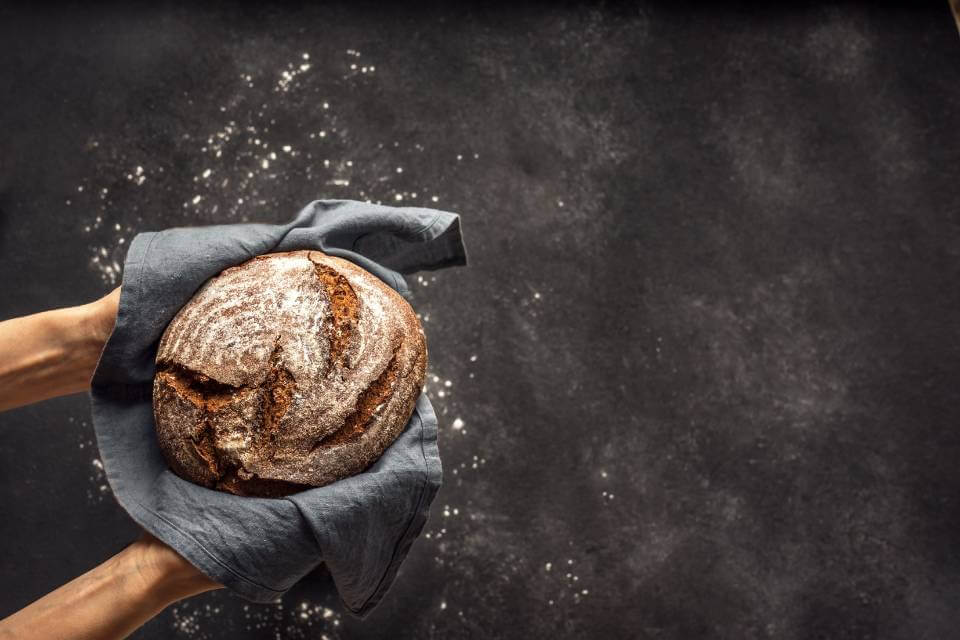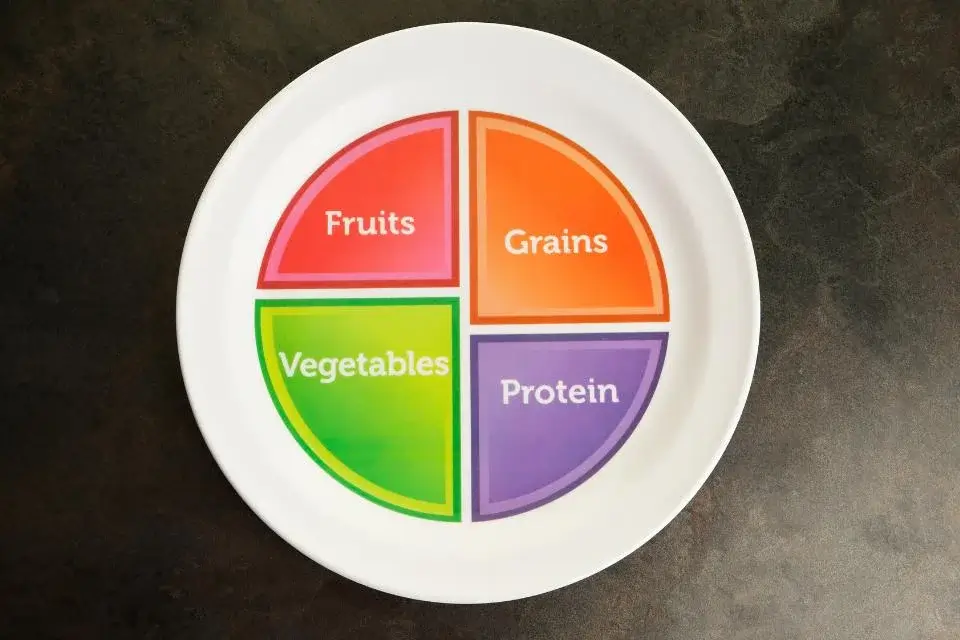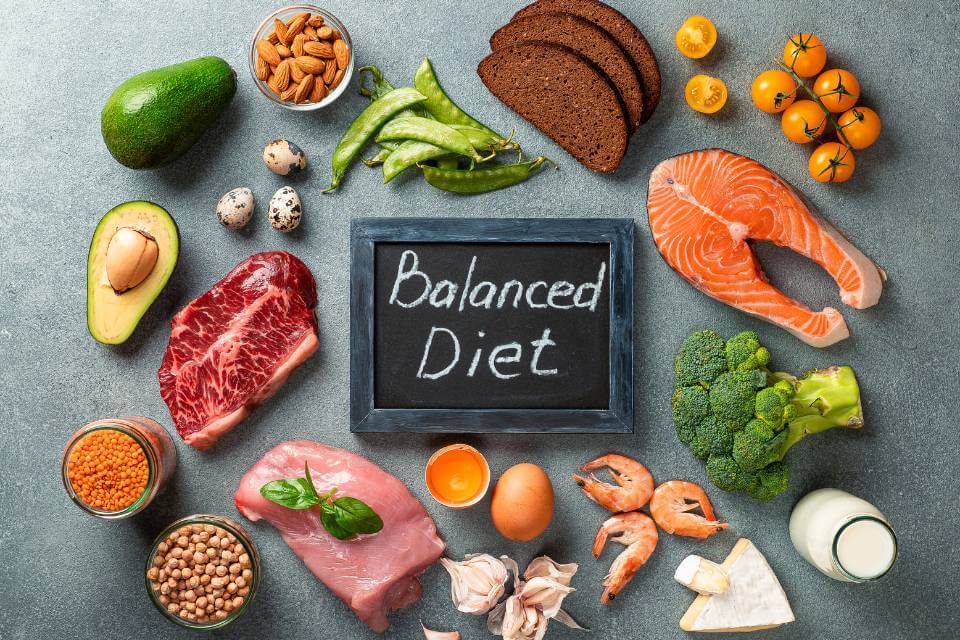Introduction
In a world that perpetually seeks the elusive remedy for weight loss, the connection between diet and the shedding of those additional pounds is a topic of substantial fascination. “Is Sourdough Bread Healthy for Weight Loss?” is the key focus here. Sourdough bread, renowned for its unique flavour and texture, has been witnessing a rise in popularity. Some enthusiasts even claim that it could be an undercover asset in the pursuit of a more health-conscious body. This article delves deeply into the realm of sourdough bread and investigates whether it can truly be regarded as a beneficial component of a weight-loss strategy.
Table of Contents
Understanding Sourdough

The Sourdough Fermentation Process
Sourdough bread is a unique product of fermentation. It’s made by mixing flour and water, allowing wild yeasts and lactic acid bacteria to naturally leaven the dough. This fermentation process is what sets sourdough apart from conventional bread.
Nutritional Components of Sourdough Bread
Sourdough isn’t merely defined by its recognisable tangy flavour; it also possesses a unique nutritional profile. It includes essential nutrients like vitamins and minerals and a well-balanced blend of carbohydrates, proteins, and fats.
Benefits of Fermentation for Digestion
The process of fermentation effectively breaks down gluten and phytic acid, rendering it more easily digestible. This can be advantageous for individuals with mild gluten sensitivities and those aiming to enhance their gut health.
Sourdough vs. Traditional Bread
Sourdough’s fermentation process offers advantages over traditional bread. It’s worth exploring how this fundamental difference impacts bread’s health benefits.
Sourdough vs. Other Breads

Comparing Sourdough to Whole Wheat Bread
Whole-wheat bread is often considered a healthier choice. We’ll compare sourdough to whole wheat bread to determine which might be better for weight loss.
White Bread vs. Sourdough
White bread is a common staple but is often associated with weight gain. We’ll analyse how sourdough fares when pitted against white bread.
Sourdough Bread and Weight Loss

The Role of Carbohydrates in Weight Management
Carbohydrates have long been viewed as both the villain and hero in the weight loss saga. It’s essential to understand how the carbohydrates in sourdough bread fit into this narrative.
Glycemic Index and Sourdough
The glycemic index (GI) measures how quickly carbohydrates in food affect blood sugar levels. Sourdough bread has a lower GI compared to many other bread types. A lower GI can be associated with more stable energy levels and better weight management.
Fibre Content in Sourdough
Dietary fibre plays a crucial role in promoting a feeling of fullness and reducing overall food consumption. Sourdough bread typically contains more fibre than its non-fermented counterparts.
Satiety and Portion Control
Feeling full and satisfied is a key aspect of successful weight management. Sourdough’s unique properties might contribute to better satiety and portion control.
Nutritional Profile
Sourdough bread exhibits a distinctive nutritional composition that sets it apart from the ordinary. This artisanal delight combines an array of vital nutrients that contribute to its wholesome character:
1. Macronutrients:
- Carbohydrates: The primary energy source, but sourdough’s fermentation process modifies these carbs, resulting in a lower glycemic index compared to regular bread.
- Protein: While not as protein-rich as some other foods, sourdough bread contains a modest amount that supports various bodily functions.
- Fat: Sourdough typically maintains a low-fat profile, aligning with heart-healthy dietary choices.
2. Fibre:
- Sourdough is renowned for its fibre content, which aids digestion, promotes a sense of fullness, and benefits overall gut health.
3. Micronutrients:
- Vitamins: Sourdough contributes various B vitamins, such as thiamine, riboflavin, and niacin, all of which play a role in energy metabolism and overall well-being.
- Minerals: It offers essential minerals like iron for oxygen transport, calcium for strong bones, and magnesium for muscular and nervous system function.
4. Antioxidants:
- The fermentation process inherent to sourdough fosters the generation of antioxidants, shielding your cells from oxidative stress and supporting your body’s defence mechanisms.
5. Low Glycemic Index:
- Sourdough bread’s unique fermentation confers a lower glycemic index, ensuring a gradual blood sugar response after consumption, making it an attractive option for those mindful of their sugar levels.
6. Probiotic Potential:
- Sourdough’s fermentation by lactic acid bacteria hints at potential probiotic properties, which can benefit your gut microbiome and digestive health.
While these nutritional facets distinguish sourdough, it’s essential to remember that specific nutritional content may vary depending on the sourdough’s recipe, preparation techniques, and any additional ingredients used. When incorporating sourdough into your diet, consider opting for whole-grain variations for increased fiber and nutrients.
Health Benefits

Gut Health and Probiotics
A well-balanced gut microbiome is increasingly recognised as crucial for overall health. Sourdough’s probiotics can play a role in promoting a healthier gut.
Lowering Cholesterol Levels
High cholesterol levels can be a risk factor for weight gain and other health issues. Sourdough might have the potential to lower cholesterol levels.
Sourdough’s Impact on Blood Sugar
Maintaining a healthy weight requires stable blood sugar levels. We’ll explore how sourdough affects blood sugar.
Reducing the Risk of Overeating
Overeating is a common obstacle to weight management. Sourdough’s unique properties might help individuals consume more mindfully.
Glycemic Index and Blood Sugar

Glycemic Index Explained
Understanding the glycemic index is key to assessing the impact of carbohydrates on blood sugar. We’ll explain this concept in detail.
How Sourdough Affects Blood Sugar
Sourdough bread’s influence on blood sugar diverges significantly from that of conventional bread due to its distinct fermentation process. This traditional breadmaking technique incorporates wild yeast and lactic acid bacteria, which enzymatically degrade intricate carbohydrates, converting them into simpler sugars and organic acids. Consequently, sourdough bread generally boasts a reduced glycemic index (GI), leading to a gradual and less pronounced elevation in blood sugar levels following consumption.
The fermentation process and the presence of acetic acid in sourdough contribute to this effect by retarding carbohydrate digestion and mitigating the post-meal blood sugar surge. Furthermore, sourdough bread often boasts a higher fibre content than its counterparts, thereby further aiding in blood sugar regulation.
The Role of Insulin in Weight Management
Insulin, a hormone that regulates blood sugar, plays a vital role in weight management. We’ll explore how sourdough’s impact on blood sugar relates to this hormone.
Weight Loss Strategies
Incorporating Sourdough into Your Diet
Incorporating sourdough into your diet is a delightful choice for those seeking a healthier bread option. Replace your regular bread with sourdough, as its lower glycemic index and higher fibre content help manage blood sugar and promote lasting fullness. Enjoy sourdough in the morning with toppings like avocado or smoked salmon, or create satisfying sandwiches with lean proteins and veggies. Homemade sourdough is a rewarding endeavour, allowing control over ingredients and fermentation. Whether as a side with soups, a dip for olive oil and balsamic vinegar, or a snack with hummus, sourdough adds a tangy and wholesome twist to your meals.
Remember to maintain portion control and stay hydrated for a balanced and fulfilling dietary experience.
Meal Planning and Portion Control

Meal planning and portion control are crucial aspects of a successful weight loss strategy, and incorporating sourdough into this plan can be both satisfying and nutritious. Here’s how to balance these elements while enjoying sourdough:
Meal Planning:
- Nutrient Balance: When meal planning, ensure that sourdough is part of a well-balanced diet. Include a variety of foods like lean proteins, vegetables, and healthy fats alongside your sourdough. This combination provides essential nutrients for weight loss and overall health.
- Sourdough Selection: Choose whole grain or whole wheat sourdough for added fibre and nutrients. This helps keep you full and stabilises blood sugar levels, supporting your weight loss goals.
- Incorporate Variety: Include sourdough in different meals, such as breakfast with avocado or lunch as a sandwich base. This keeps your diet interesting and helps prevent boredom or cravings for less healthy options.
Portion Control:
- Sourdough Serving Sizes: Pay attention to portion sizes when enjoying sourdough. One or two slices are usually sufficient for a meal. Also, using smaller plates can help with portion control.
- Toppings: A mindful selection of toppings is key. Opt for healthier choices like lean proteins, fresh vegetables, and spreads like hummus or nut butter. This keeps calorie intake in check while enhancing taste and nutrition.
- Avoid grazing: Snacking on sourdough throughout the day can lead to excessive calorie consumption. Stick to planned meals and snacks to maintain portion control.
- Hydration: Drinking water with your sourdough can help control portion sizes by promoting a feeling of fullness. Hydration also supports digestion and overall well-being.
- Mindful Eating: Savour each bite of your sourdough, eating slowly and appreciating the flavours. This practise can prevent overeating and improve your awareness of fullness cues.
Satiety and Appetite Control
The Importance of Feeling Full
Satiety, the feeling of fullness after a meal, is critical for weight control. We’ll discuss how sourdough can contribute to this sensation.
Sourdough’s Impact on Appetite
Does sourdough bread leave you feeling more satisfied than other bread types? We’ll examine its effects on appetite.
Reducing Cravings and Snacking
Cravings and excessive snacking are common challenges in weight loss. We’ll explore how sourdough might help curb these behaviours.
Potential Drawbacks

While sourdough can be a nutritious choice, there are potential drawbacks to consider for weight loss:
- Caloric Content: Sourdough, like all bread, contains calories, and overconsumption can hinder weight loss efforts.
- Portion Control: Sourdough’s delicious taste can lead to larger portions, which may contribute to excess calorie intake.
- High Carbohydrate Content: Even with a lower glycemic index, sourdough is a carbohydrate-rich food that may not suit low-carb diets.
- Individual Variability: Responses to sourdough can differ among individuals, affecting its effectiveness for weight loss.
- Commercial Varieties: Store-bought sourdough may contain additives or excess salt, which can be counterproductive for health goals.
Balancing sourdough consumption with portion control and an overall balanced diet is key to successful weight loss.
Gluten Content in Sourdough
Understanding the gluten content in sourdough is vital for individuals on a weight loss journey. Sourdough, despite its unique fermentation process, isn’t entirely gluten-free. Thus, it may not be a suitable choice for those with celiac disease or severe gluten sensitivity.
However, for those with milder sensitivities, the altered gluten structure in sourdough might make it a more digestible option. It’s essential to consider individual tolerance and seek guidance from healthcare professionals when incorporating sourdough into a weight loss plan, especially if gluten-related concerns are a factor.
Allergies and Sensitivities
In addition to gluten, it’s essential to consider potential allergies and sensitivities related to sourdough consumption. Some individuals may have wheat allergies, which can lead to various reactions, including skin issues and digestive discomfort.
Furthermore, specific sourdough recipes may contain dairy, so those with lactose intolerance or dairy allergies should be cautious. Always check ingredient labels and choose sourdough options that align with your dietary needs.
Moderation in Consumption
Even with healthy foods, moderation is key. Here are guidelines for responsible sourdough consumption:
- Portion Control: Limit your serving size to avoid excess calorie intake.
- Balanced Diet: Include sourdough as part of a balanced meal with vegetables, proteins, and fats.
- Calorie Awareness: Be mindful of your overall calorie intake, especially if you’re aiming for weight loss.
- Hydration: Drink enough water to support digestion and prevent overeating.
- Individual Tolerance: Consider your unique dietary needs and any sensitivities when enjoying sourdough.
Balancing Nutrients
It’s essential to consume sourdough in moderation as part of a well-rounded diet, emphasising vegetables, lean proteins, and healthy fats, to achieve sustainable weight loss and overall health goals.
Tips for Including Sourdough in Your Diet

Sourdough Swap: Instead of reaching for ordinary bread, embark on a culinary adventure by making sourdough your new go-to choice. Its distinct tangy flavour, combined with a lower glycemic index and increased fibre, makes it a savvy option for keeping blood sugar levels in check and curbing hunger pangs.
Balanced Combinations: Blend this artisanal bread with lean proteins like grilled chicken or tofu and an assortment of vibrant vegetables. This dynamic trio ensures a well-rounded meal brimming with essential nutrients.
Open-Faced Creations: Opt for a single slice to reduce your carb intake while allowing your culinary artistry to shine. Load it with an array of fresh greens, lean proteins, and artful spreads, transforming it into a scrumptious and nutritious masterpiece.
Sourdough Snacking: Top them with sumptuous avocado, velvety hummus, or creamy nut butter. These options provide a satisfying and wholesome snack rich in healthy fats and protein, ideal for keeping those cravings at bay.
Expert Opinions and Tips

Nutritionists often offer valuable insights when it comes to incorporating sourdough bread into a weight-loss plan. Here are some tips from nutrition experts:
- Choose Whole Grain Sourdough: Opt for whole grain sourdough bread instead of refined white varieties. Whole grains offer more fibre and nutrients, which can help keep you feeling full for longer, reducing the temptation to snack on less healthy options.
- Portion Control: Be mindful of portion sizes. Sourdough, while healthier than some other bread, still contains calories. Stick to a reasonable portion to manage calorie intake effectively.
- Balanced Meals: Use sourdough as a part of balanced meals. Include lean proteins, such as grilled chicken or fish, and plenty of colourful vegetables. This combination ensures that you’re getting a variety of nutrients without overloading on carbohydrates.
- Mindful Toppings: Pay attention to what you put on your sourdough. Avoid excessive amounts of high-calorie spreads like butter and sugary jams. Opt for healthier choices like avocado, hummus, or nut butter.
- DIY Sourdough: Making your own sourdough at home can be a healthier option as you have control over the ingredients. You can also choose to ferment it longer, which may further reduce the glycemic index.
- Monitor Blood Sugar: If you have diabetes or are concerned about blood sugar levels, consider monitoring your response to sourdough. Some people may find it better for blood sugar regulation, but individual responses can vary.
- Stay Hydrated: Sourdough’s higher fibre content may require increased water intake to aid digestion and prevent constipation.
- Moderation is Key: While sourdough can be a valuable part of your weight loss plan, remember that no single food is a magic solution. Balance and moderation are key principles for a successful, sustainable weight-loss journey.
Always consult with a registered dietitian or nutritionist for personalised advice tailored to your specific dietary needs and weight loss goals.
Common Myths and Misconceptions
- Gluten-Free Belief: A prevalent myth suggests that sourdough is naturally gluten-free. While the fermentation process may reduce gluten content, it remains unsuitable for those with celiac disease or severe gluten intolerance.
- Low Carb Assumption: Some think that sourdough is always low in carbs. While it has a lower glycemic index, it does contain carbohydrates and can impact blood sugar levels.
- Probiotic Perceptions: There’s a misconception that sourdough is teeming with probiotics. While it involves lactic acid bacteria, it’s not necessarily a potent source of probiotics like yoghurt.
- Sourdough’s Infallibility: Not all sourdough is inherently healthy. Its healthiness hinges on ingredients, and some sourdough bread can still contain added sugars, fats, or preservatives.
- Generational Starter Notion: Sourdough doesn’t have to be made from a centuries-old starter. Many bakers use commercially prepared starters or craft their own from scratch.
- Quick and Easy Expectations: The sourdough-making process is neither swift nor simple. It demands time and patience due to fermentation, extending over hours or even days.
- Assumption of Vegan Origins: Sourdough recipes might include dairy products, so checking the ingredients is key for vegans.
- Uniform Sourness Misconception: Sourdough’s tanginess varies depending on fermentation time and yeast strains. It can range from mildly sour to intensely tangy.
- Grape or Raisin Starter Belief: The notion that sourdough starters must begin with grapes or raisins is a misconception. Starters can originate from diverse sources, including just water and flour.
Recognising and dispelling these myths enables a deeper appreciation of the intricacies of sourdough bread, embodying both its cultural richness and culinary diversity.
Conclusion
In this comprehensive exploration, we’ve uncovered the potential benefits of sourdough in a weight-loss journey. While it’s not a miracle solution, sourdough’s unique properties, including its fermentation process, lower glycemic index, and impact on gut health, make it a promising addition to a healthy diet.
Frequently Asked Questions
Can I eat sourdough every day and lose weight?
While incorporating sourdough into your daily diet is possible, successful weight loss relies on a well-balanced approach. Sourdough, with its lower glycemic index and increased fibre, can aid in regulating blood sugar and curbing appetite. However, moderation is crucial. Overeating any food, even a healthier one like sourdough, can hinder weight loss. Ensure your diet remains diversified, with an emphasis on portion control.
Is sourdough bread good for belly fat loss?
Sourdough’s nutritional advantages, such as its lower glycemic index and higher fibre content, can contribute to overall weight loss, which may include reductions in belly fat. However, a spot reduction of belly fat isn’t feasible. Effective fat loss comes from a combination of a balanced diet, exercise, and maintaining a calorie deficit.
Which bread is best for weight loss?
The best bread for weight loss is typically whole-grain or whole-wheat bread, which offers higher fibre and nutrient content. Sourdough can be a good choice due to its lower glycemic index and unique fermentation process, but the key to weight loss remains an overall balanced diet that includes a variety of whole foods.
Is sourdough bread a junk food?
Sourdough bread is not considered a junk food. It’s a traditional bread made through natural fermentation, containing fewer additives than some commercial bread. However, like all foods, its health depends on the recipe and ingredients used. Opt for homemade or artisanal sourdough for the purest form.
Is sourdough high in calories?
Sourdough bread contains calories like any other bread, but the exact amount varies based on serving size and recipe. On average, a standard 100-gram portion contains around 220 to 250 calories. Portion control is essential for effective calorie management during weight loss.
Final Thoughts
In the grand quest for weight loss, it’s essential to remember that there’s no one-size-fits-all solution. Balancing your weight management journey with a variety of nutritious foods, including sourdough, can contribute to a healthier and more sustainable lifestyle.

